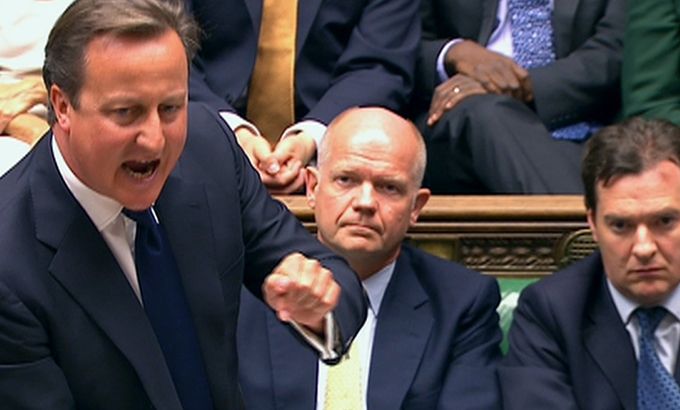
UK’s war fatigue and ‘special relationship’
As British parliament rejects military intervention in Syria, we ask how it will affect its relations with the US.
British politicians have voted against military involvement in Syria.
... the British people are rather fatigued by so many wars that we get involved with in the Middle East. And it's not surprising that most MPs were not willing to vote for it at this stage ...
It is an embarrassing defeat for Prime Minister David Cameron, who had recalled parliament to seek consent for missile strikes.
He had been expected the vote to pass, allowing him to stand shoulder to shoulder with Barack Obama.
Cameron conceded the vote reflected the views of the British people and would act accordingly.
Meanwhile, opposition leader Ed Miliband said MPs had reacted against the prime minister’s “cavalier and reckless” leadership.
Speaking in the House of Commons, Miliband asked: “Can the prime minister confirm to the House that he will not use the Royal prerogative to order the UK to be part of military action, given the will of the house that has been expressed tonight, before there has been another vote in this House of Commons?”
To which the prime minister responded: “I strongly believe in the need for a tough response to the use of chemical weapons but I also believe in respecting the will of this House of Commons.
”I
president, both internationally and domestically.”]
“It is clear to me that the British parliament, reflecting the views of the British people, does not want to see British military action. I get that and the government will act accordingly.”
The vote is now raising questions about Britain’s international standing. Britain’s Chancellor of the Exchequer George Osborne says Britain will have to do some “soul searching” about its role in the world.
However, after the vote, Richard Ottaway, the chairman of parliament’s Foreign Affairs Select Committee, said that “Britain stands a lot shorter tonight”.
And on failing to step into the Syrian conflict, Lord Ashdown,, the former Liberal Democrat leader, said he had “never been so depressed and ashamed of his country” .
The decision is also likely to bruise the so-called ‘special relationship’ Britain has enjoyed with the US. The White House says America will now act in its own best interests in dealing with the crisis in Syria.
Chuck Hagel, US defence secretary, told a news conference, “The British have been very strong in condemning the Syrian regime’s use of chemical weapons, and that vote in the parliament doesn’t change that, and that’s a very significant position for any nation to take, and we’ll continue to work with Britain and
consult with all our allies.”
But where does this leave Britain’s relationship with the US? And will Washington be prepared to take military action against Syria on its own?
Inside Story, with presenter Jane Dutton, discusses with guests: Andrew Rosindell, British Conservative MP; Graeme Bannerman, former Middle East analyst with the Senate Foreign Relations Committee and the US state department; and Ian Black, Middle East editor for The Guardian.
|
“I think Cameron miscalculated, he misjudged the mood of parliament, of his own party, of the Labour opposition and the country. “Of course he has to put a brave face on it and he had no choice but to accept the will of parliament … but I think that this was a serious defeat for his government, the one that has quite rightly caused a lot of head scratching and soul searching about Britain’s role in the world, particularly along with its long-standing ally, the United states …” Ian Black, Middle East editor for The Guardian |